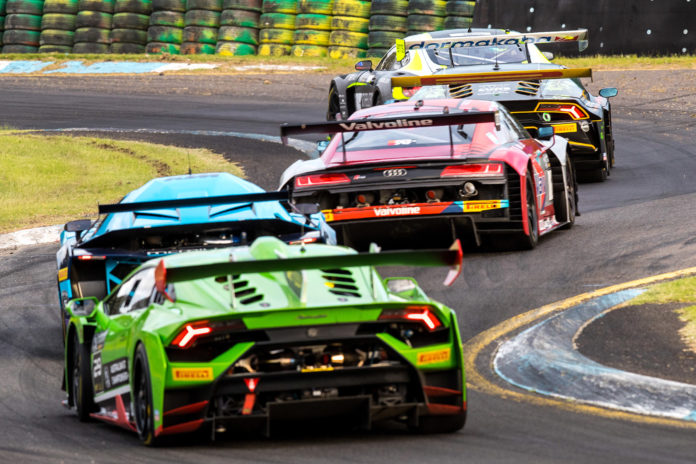One of the changes to the structure of the various 2020 Australian GT Championships sees the introduction of an experienced former international competitor as the new Driving Standards Observer [DSO] for the category, with British-born Marcus Mahy taking on the role, beginning with the GT Sportscar Festival event at the Phillip Island Grand Prix Circuit scheduled for 20-22 March.
A former Royal Air Force officer, Mahy turned a career in the financial sector into an early retirement and the start of a love affair with motorsport. He campaigned a variety of production cars and U2TC cars across Europe – in the process claiming the title in 2013. He also dabbled in open-wheelers with success in Formula Renault 2000 at Le Mans before moving his passion for competition into the heartland of ‘gentleman drivers’ – GT cars.
In 2012 Mahy joined the Nurburgring-based Aston Martin Lagonda team campaigning a V12 Vantage GT3 where he contested the VLN Series and the Nurburgring 24 Hour races, culminating in a second place finish in the SP8 class in 2014 alongside multiple-Australian GT race winner Liam Talbot, for whom Mahy became a driver coach during Talbot’s successful foray into European endurance championship events.
Sadly Mahy, who moved from Aston Martin across to the Kessell Ferrari 458 GT3 team in 2013, suffered a nasty crash at the Spa 24 Hours between the iconic Stavelot and Blanchimont sections of the circuit, which ended his driving career. Contact from an amateur driver put him heavily into the barriers, and ultimately forced a long recovery in hospital.
Air-lifted from the circuit as a result of the accident, Mahy was diagnosed with a brain injury, a fractured skull, broken neck, broken back in two places, damaged lungs and what he terms as various other ‘less serious’ injuries.. Ultimately his road to recovery was a lengthy one, the upshot of which took the bulk of the next 12 months, and a move from Europe to the sunny beaches of the Queensland Gold Coast.
“That incident probably makes me one of the more qualified persons to be keeping an eye on what drivers do and having a chat with those that need it,” Mahy explained. “Since then I have had a few connections with motor racing – mainly in the roles of race strategist with Aston Martin for the Nurburgring 24 hours, and some driver coaching with drivers in Australia and internationally.
“It feels very good to be returning to the sport with a chance to give something back after motorsport gave so much to me over many years. GT racing is the fastest growing area of motor sport and my aim will be to make sure that all of the drivers are aware of the standards required of them so that we can keep this a safe sport.”
An important part of professional motorsport in the modern era, the role of DSO has improved many categories over recent years, with both new, and even seasoned competitors given the benefit of the DSO’s own experiences in an effort to resolve issues that may occur on track, or in front of the stewards, especially where every contact in Australian GT is investigated post-race.
Former DSO Karl Reindler played an instrumental role during his tenure, making Australian GT one of the most hotly contested championships in the country with very little on-track contact.
With the opening event of the season at the Bathurst 12 Hour now concluded, focus turns to the two Australian GT Trophy Series rounds at Sandown in Melbourne and Sydney Motorsport Park across mid-February and early March, before the inaugural ‘GT Sportscar Festival’ – round two of the Australian Endurance Championship – at Phillip Island, with the first of two 4-Hour races at the venue.
Then, one of the most anticipated races of the year, the opening round of the 2020 Australian GT [GT3] Championship at Bathurst in Easter for two 60-minute races – an event that has already attracted strong interest from the AGT teams.









